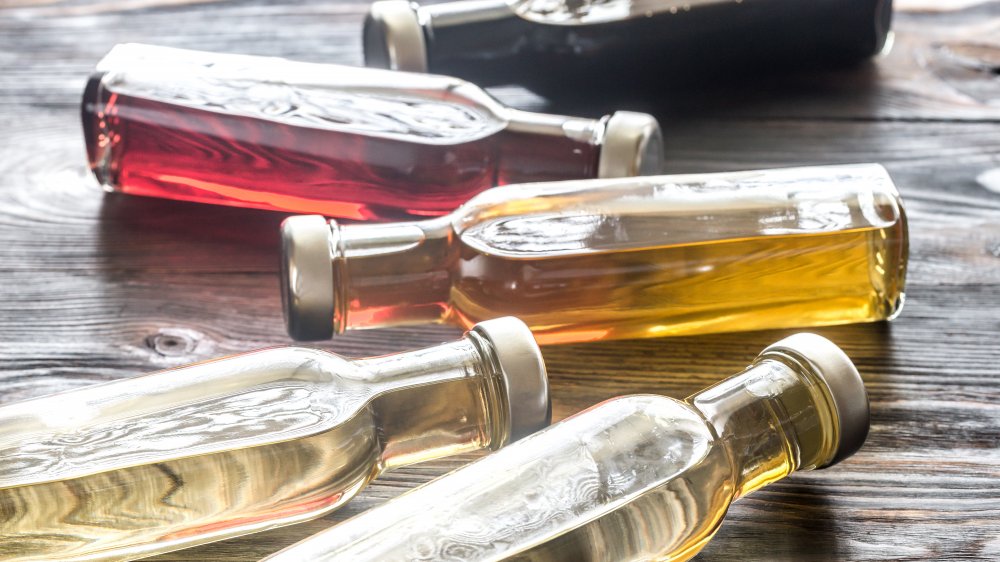Don't Throw Out Your Old Wine Before Reading This
Disappointment: when you, at the end of a 100-hour-long day, reopen a bottle of expensive wine, pour it into a glass, take off your sweaty socks, recline on the sofa, bring the glass to your lips ... and spit it out. It's rancid.
You've tried all the usual ways to salvage old wine. You've marinated meat in it (via Vinepair). You've even turned the stuff into a natural clothing dye. You would bathe in it, but who lets enough wine go to waste to fill a bathtub? In any case, nothing you've attempted yet has cut through the sting of disappointment brought on by realizing that your wine's gone bad.
Nothing, at least, until now. We won't go as far as to suggest that it's worth letting a bottle of wine go bad on purpose. But the next time you let a wine sit beyond the three- to five-day shelf life it has once opened (via Epicurious), take a deep breath. When life gives you lemons, make lemonade. When life gives you rancid, fermented grapes, make vinegar.
How to turn old wine into vinegar
Set yourself up for success. To make any wine into vinegar, you'll need to mix it with a so-called live vinegar. It's named that way because it's alive – literally. Live vinegar is unpasteurized and contains a "mother." The "mother," in turn, is a cellulose cloud that gives acetic acid bacteria the home it needs to efficiently convert alcohol into vinegar (via Supreme Vinegar). Epicurious suggests that raw apple cider vinegar is a good starting point.
Once you've got that covered, a little bit of patience is all you'll need. From the Grapevine recommends that you mix a bottle of live vinegar into any leftover wines in a jar. It doesn't matter what kind of wine you use, but for optimal taste, avoid mixing whites and reds. Next, cover your jar with a cheesecloth. A paper towel will do in a pinch, but stay away from heavier knits as you want to permit air to circulate.
That was the hard part. Now all you've got to do is let it rest in a cool, dark place. Epicurious advises that you wait up to three months for your mixture to properly ferment, feeding the mixture periodically with new spoons of wine. If you do, just be careful not to move the "mother." You could, however, opt to follow From the Grapevine's easy-going approach, and start tasting your vinegar after just a week. Use it as soon as you like it.

